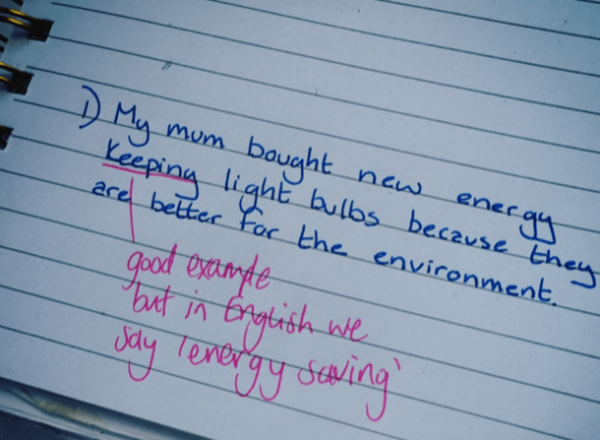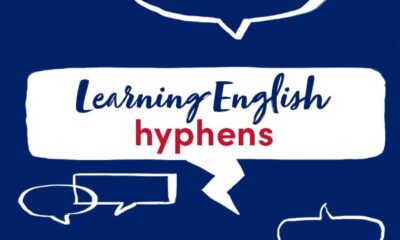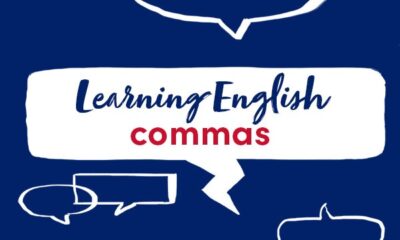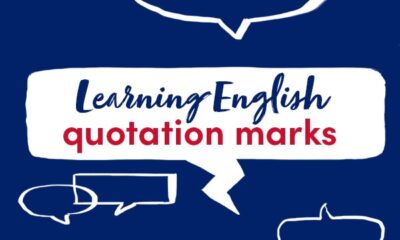As a learner of the English language, how many times have you heard your teachers say, ‘it’s just not what we say in English’ or ‘that doesn’t sound very natural’? Or maybe you have thought to yourself, ‘this doesn’t sound right’ but you don’t know why?
There is a good chance it is because you are not using the correct collocations.
Sorry, what are collocations?
Well, in English, there are certain words and phrases that we normally use together (or use more frequently than others). These words ‘sound’ right together and they are examples of collocation.
Learners of English often find that their speaking and writing doesn’t sound like a native English speaker because they use the wrong collocations.
Why do I get it wrong?
Translating directly from a mother tongue language into English can cause collocation problems, especially when the word has more than one meaning.
Problems can also occur when students try to use synonyms (words with the same meaning) to make their writing more interesting. In theory, this is a great idea. You can improve your English level by expanding your vocabulary, and the Collins thesaurus is a brilliant way to do this. However, you also need to make sure that the synonyms you choose are good collocates.
So, how do we know which words are collocates?
Native speakers usually just know which words ‘go’ together because they sound natural. However, if you asked any native English speaker to give you a list of collocates for any word, you can be sure that they would find the task very difficult!
How do you do it then?
Luckily, there is another way. We can use a corpus. A corpus is a big database of language. The Collins COBUILD Corpus is made up of natural language from sources like websites, books, newspapers, magazines so you can be sure that the language is used in an authentic way. We can then to search the corpus for the words that most frequently appear beside each other.
Ok, but why is it important?
Being able to learn what words naturally fit together will help you to sound more natural and improve your level of English. Also, it’s often easier to learn chunks of English rather than individual words.
What do you mean, chunks of English?
For example, let’s say you have read a text and learned the word ENERGY. You’re a good student so you write the word in your vocabulary book, then you check the meaning, maybe you also translate it. Are you confident now that you can use it?
Maybe… I’m not sure.
What if there was an easy way to find out which words are commonly used with the word ENERGY?
That might help…
You’re in luck! The COBUILD Collocations can help you do exactly that! Let’s take a look at ENERGY. If you scroll down the entry, you will find a section called ‘COBUILD Collocations’. This section shows us some of the verbs that we commonly use with ENERGY are:
• require
• release
• consume
• save
• store
We can also see that some common types of ENERGY are:
• physical energy
• intellectual energy
• mental energy
• electrical energy
• sustainable energy
Now you know some ‘chunks’ of language that are associated with the word ENERGY.
You could even put some of them together to make longer chunks:
• require physical energy
• store electrical energy
I see. That’s useful, but how do I use them in a sentence?
I’m glad you asked! If you click on the collocation (for example save energy) you will be shown a number of example sentences to help you further understand how to use the word in context. Helpful, right?
It really is! What else can it help me to learn?
Imagine you are writing about your favourite summer holiday in English and you want to describe the beach. What adjectives can you use?
Um… Nice? Quiet?
Good! But what if you want to expand your vocabulary and use higher level language? Try looking up the COBUILD Collocations for BEACH.
Ooooh, stunning, idyllic, pristine, deserted… this is great!
You’re welcome!
And how can you find an example of ‘idyllic beach’ in a sentence?
I can see the example sentences by clicking on the Related Collocations for idyllic beach.
Correct! Any more questions?
When are the next summer holidays? I’d like to visit that idyllic beach soon!



